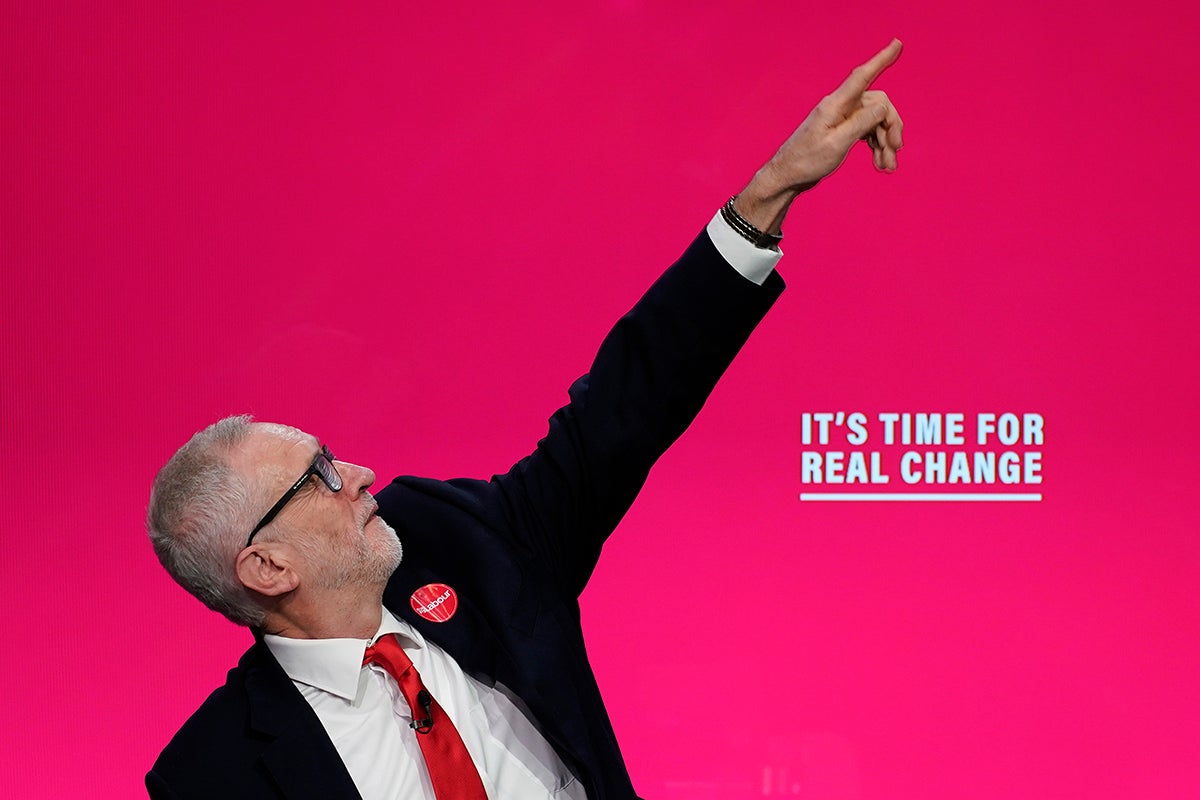Your support helps us to tell the story
From reproductive rights to climate change to Big Tech, The Independent is on the ground when the story is developing. Whether it's investigating the financials of Elon Musk's pro-Trump PAC or producing our latest documentary, 'The A Word', which shines a light on the American women fighting for reproductive rights, we know how important it is to parse out the facts from the messaging.
At such a critical moment in US history, we need reporters on the ground. Your donation allows us to keep sending journalists to speak to both sides of the story.
The Independent is trusted by Americans across the entire political spectrum. And unlike many other quality news outlets, we choose not to lock Americans out of our reporting and analysis with paywalls. We believe quality journalism should be available to everyone, paid for by those who can afford it.
Your support makes all the difference.Labour says its policies are both radical and popular. The former will be a matter of opinion, but fortunately, we can check the latter - there's been a lot of polling done on the proposals.
YouGov asked about a lot of policies that made in it into the manifesto at the start of November, and generally they are pretty, or very popular.
The tax rises on the rich are actually the most popular policy YouGov polled: The most popular is the 50 per cent tax rate for earnings over £123,000: 64 per cent of voters support that, with just 20 per cent opposed and 16 per cent not sure.
A 45 per cent rate for earnings over £80,000 is similarly popular: 60 per cent support and just 23 per cent oppose.
Concerns that voters would oppose tax rises on a bracket they one day hope to aspire to seem to be, frankly, not true.
The party's nationalisation plans are also broadly popular: 56 per cent support nationalising railways and just 22 per cent oppose. Water companies 50 per cent support and just 25 per cent oppose. Utilities like gas and electricity are supported by 45 per cent – though Labour's policy is less ambitious than this and relates to the national grid and publicly owned competitors.
The most high-profile announcement on broadband is a bit more complicated: voters aren't as sure about nationalising Openreach, with 32 per cent supporting and 31 per cent opposed – not an unpopular policy by any means. But the ends of the policy: free broadband for all, is widely supported. 62 per cent support the idea and 22 per cent oppose it.
The plans discussed by John McDonnell on Friday to overhaul corporate governance and make boards one third elected workers have also been very positively received: 54 per cent support these policies and 21 per cent oppose them.
What to make of all this? The public are absolutely not scared of government intervention and quite like Labour's socialist platform. These policies individually range from quite popular to ridiculously popular.
Of course, Labour is still far behind in the polls, with the Tories averaging around 10 point lead. But it very difficult to find any evidence to suggest that Labour's policy platform is causing that.

Join our commenting forum
Join thought-provoking conversations, follow other Independent readers and see their replies
Comments